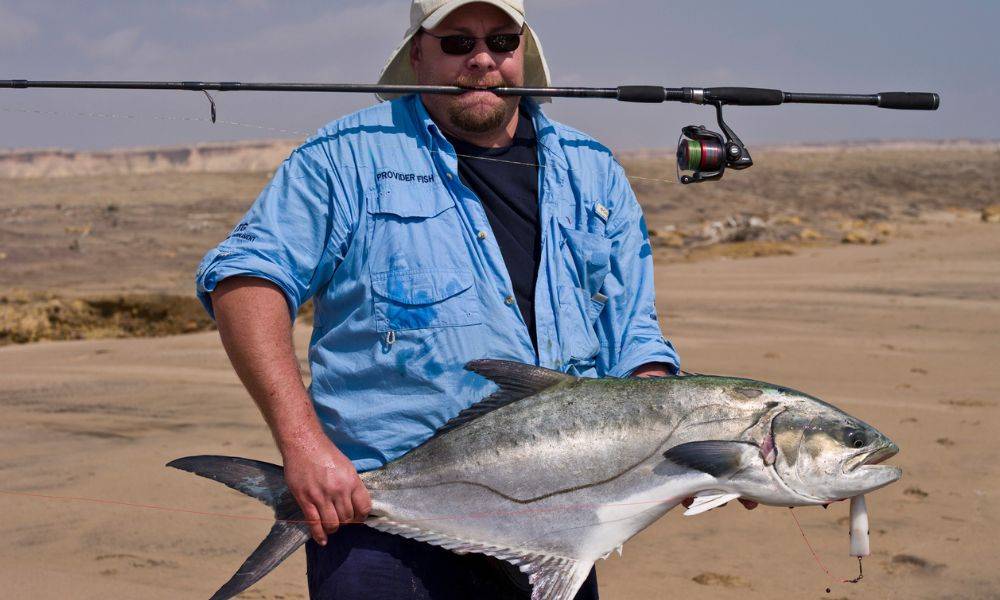Whether you’re a beginner or an experienced fisherman, there are some tips you can follow to help you catch large fish. This includes choosing the right bait, knowing the right time of year to fish, and understanding how to make a lure stick.
Proper presentation of the lure
Whether you’re fishing for bass, trout or walleye, understanding the proper presentation of a lure can help you catch more fish. While some lures require spastic retrieves, others can be dragged at a leisurely pace. This will give the fish more time to feel out the situation.
One of the more useful and nifty aspects of a lure is the way it performs in different conditions. This is especially true when fishing for large fish like a https://larkfish.net/pike-vs-pickerel-vs-muskie/ A lure that swims flawlessly will prevent tangles and skittish game fish from attacking your line.
Another aspect of a lure’s performance is the way it performs when it’s twitched. For example, a lure’s buoyant effect can attract trout, but a lure’s buoyant effect can be spooky to large bass.
One of the most important aspects of a lure’s performance is the speed of the retrieve. If you’re in a hurry to catch a big fish, you’ll want to pick a lure that swims at a speed that matches the conditions.
Proper time of year and day

Choosing the proper time of year and day to catch large fish depends on several factors, including location and species. The general rule is that fish are most active during the night. However, some species of fish have seasonal hiding times, and will be more active during different parts of the day.
For instance, bass are more active during the early morning. These fish will move shallow in protected coves as the water warms. In northern sections of large lakes, bass will move shallow earlier. Fish activity slows down in the late afternoon and evening, but may remain active after dark.
There are several factors that can affect fishing, including the weather and light intensity. You should be prepared to take precautions, including wearing protective gear and checking the weather forecast before your trip. In addition, avoid fishing when thunderstorms or fronts are predicted. This can be dangerous.
When fishing saltwater, the water temperature plays a major role. Early mornings are ideal for saltwater fishing. However, if you are fishing in a pond, you will be better off fishing midday.
Snapping line when a fish pulls away
Using the best quality line in the most optimal conditions is the key to a successful day on the water. A little care and maintenance goes a long way. Keeping your rod spool filled with fresh line and a little tinkering with the bobbin will go a long way to avoiding the dreaded salt water burn. It is also a good idea to have a spare reel of line on hand in case of emergency. You may even want to consider a second rod as a backup in case the first one fails.
The best thing to do is to enlist the assistance of a buddy or two. Having a buddy on hand to answer questions or just to cheer you on is a surefire way to ensure your success.
Choosing the right bait

Choosing the right bait to catch large fish is an important step for a successful fishing trip. There are a wide variety of baits, which include natural and artificial. Choosing the right bait depends on the type of fish you’re targeting, the water conditions, and your fishing tactics.
Fish are often attracted to a bait that is above the surface. They mimic the color, smell, and movement of their prey. Fish will also be attracted to lures that make a noise.
Natural baits are often effective for catching larger fish. These include worms, leeches, and other creatures that live beneath the surface.
Artificial baits include spinnerbaits, jigs, and spoons. Some are designed to mimic the movements of a specific fish, while others are designed to draw attention to an angler’s money.
The best baits for freshwater fishing are minnows, crayfish, and leeches. Saltwater baits include squid, crabs, and shrimp.
Bass will almost always bite on night crawlers. They are relatively inexpensive, easy to find, and almost always catch fish.